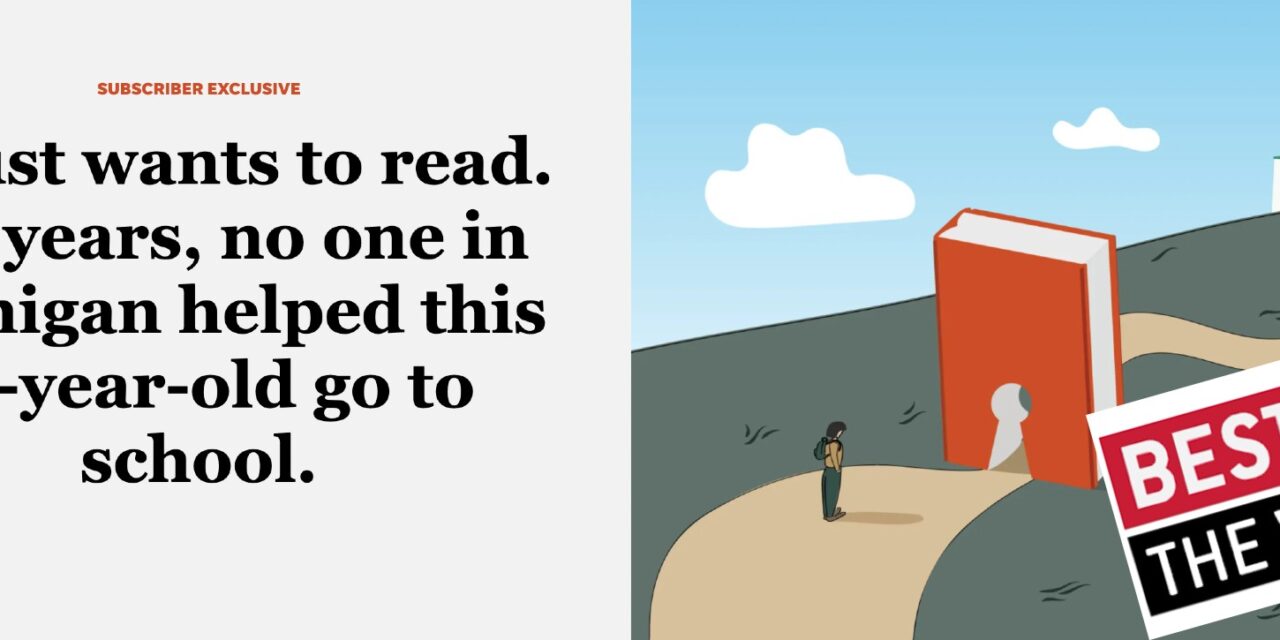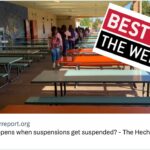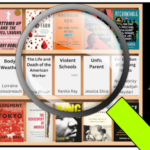In this week’s newsletter: More districts go mask-optional, reflect on what they’ve done, and set new priorities. Beat reporters look back on covering schools during the pandemic. The Boston Globe replenishes its education team. And one education journalist with strong ties to Ukraine is interviewed about what following the news has been like for her.
TWO-YEAR PANDEMIC ANNIVERSARY
The big story of the week, according to us:
The big story of the week is the two-year anniversary of the pandemic, a period many describe as difficult or even chaotic. With schools now overwhelmingly open full-time and mask-optional, districts and educators are assessing where students are at and what most urgently needs attention — just as another possible surge looms in the future:
🔊 Two years ago schools shut down around the world. These are the biggest impacts (NPR)
🔊 Schools look beyond COVID (CBS News)
🔊 How Schools Survived Two Years of COVID-19 (EdWeek)
🔊 Students, teachers wrestle with masks after mandate drops (Seattle Times)
🔊 Bay Area schools face the first day in classrooms without a mask mandate (SF Chronicle)
🔊 Two Years of COVID School Chaos (The 74)
🔊 A new analysis reveals a heavy toll on young families of color (Boston Globe)
🔊 Two years later, one counselor says students are still feeling the impact (WLRN)
🔊 What Kept Students, Staff Going During the Pandemic: Three Case Studies (The 74)
🔊 Why L.A. could be the last school district in America to lift its mask mandate (Yahoo News)
🔊 How did two years of chaotic schooling in a pandemic impact students? (Dallas Morning News)

TWO YEARS COVERING THE PANDEMIC
New commentary from The Grade
Above: Top, left to right: Some of the many journalists who shared their experiences covering education over the past two years.
It’s been a rough ride for many schools during the past two years. What about for education reporters and editors? Much the same, as it turns out.
Asked to relate their highs and lows covering schools for an informal oral history about the experience, a dozen education reporters and editors shared intense moments, personal challenges, and hopes for the future.
“He was on a respirator for three weeks. It was all in Spanish. She was sobbing on the phone. I will never forget it.” – Cleo Krejci, Des Moines Register/Iowa City Press-Citizen
“As a parent, there were a lot of ‘How the hell is this going to work?’ moments.” – Kristen Graham, Philadelphia Inquirer
“I really had no choice. If I was going to do my job properly, I had to be in the school buildings as much as possible.” – Keung Hui, News and Observer
Just as telling, a lot of journalists told us that they were still too exhausted to process their thoughts. You can read it all here.
ALSO: Riffing off recent comments from me about education journalism’s slowness to change, New York School Talk’s Alina Adams asked her NYC parent readers what they’d like to see more of from education reporters and they did not hold back.

NEGLECTED KIDS, REOPENED SCHOOLS
The best education journalism of the week, plus a runner-up and some bonus stories.
🏆 BEST: The best story of the week is Jo just wants to read. For years, no one in Michigan helped this 12-year-old go to school. by Lily Altavena in the Detroit Free Press. Altavena follows the harrowing efforts to get a homeschooled 12-year-old into school so she can learn to read, write, and do math. Her parents say they are homeschooling her, but other relatives say she is far behind academically and does not know how to read. Until now, she has only spent a week and a half in a classroom, though she says she would prefer to go to school. However, there’s little recourse for Jo and her concerned family members under Michigan law, according to Altavena’s reporting. “There is no state agency tasked with dealing with this,” said one advocate. “…It is completely within the right of the parent to educate or not educate their children as they see fit.” Educational neglect is an important story and this one is well told, though reporters and readers should know that kids attending district schools too often don’t receive the education they need either.
🏆 RUNNER-UP: This week’s runner-up is Their school reopened quickly. They flourished. by Perry Stein in the Washington Post. Certainly one of the most talked-about pieces this week, the article looks at one school in suburban Colorado Springs that did the opposite of what many big-city districts did: it opened schools full-time, in person in fall 2020 — and mostly stayed that way. Masks were optional. Band and sports practices resumed. Kids sat at communal tables. The result? Progress was made in reading. SAT scores stayed steady. And no child was hospitalized with COVID (only two school employees were). Some parents and educators felt that the district didn’t go far enough to keep everyone safe. But still, Stein writes, their experience “offers evidence for those who say schools could have avoided some of the prolonged closures — and the serious academic and social impacts that came from them.” For another very good look back at a single district’s two-year journey, check out this EdWeek feature.
BONUS:
🏆 A school created a homeless shelter in the gym and it paid off in the classroom (Hechinger Report)
🏆 Why do so many families opt out of OUSD schools? It’s complicated (The Oaklandside)
🏆 In one heavily segregated city, the pandemic accelerated white flight (Hechinger Report)
🏆 “Lunch Ladies” Are Tired of Being Underpaid and Overlooked (Jacobin)
🏆 The Inside Story of How a ‘Bogus’ Letter Roiled Britain (New York Times)
🏆 Why the School Wars Still Rage (New Yorker)

MEDIA TIDBITS
Thought-provoking commentary on the latest coverage.
Above: This American Life aired a new Chana Joffe-Walt-reported episode on how the pandemic “broke” school, including powerful segments about a state teacher of the year who quit the profession and a girl who reappeared at her LA school after a long absence.
📰 TO “LITIGATE THE PAST” IS WHAT WE NEED TO DO: The anniversary of the pandemic has got me reflecting on both schools’ responses to the pandemic and the pandemic coverage that’s been produced. What went well? What could have been done better? When it comes to the education system’s response, the two main errors I saw were downplaying vulnerable kids’ needs relative to adults and closing or reopening entire school systems rather than offering targeted options to parents and educators. When it comes to the journalism that was produced, the two main problems I saw most often were the emphasis on fears and risks and the lack of numerical and historical context.
I wish that more educators and education journalists were willing to reflect on these things, though the desire to keep looking forward is understandable. Reflecting can be painful and feel pointless. But writing self-reflection off as a destructive blame game or a desire to “litigate the past” is unhelpful. Educators and education journalists can (and must) reflect on the past and look to the future at the same time. Neither can be done in isolation with any hope of positive results. For a good model, check out Zeynep Tufekci’s analysis, How Millions of Lives Might Have Been Saved From Covid-19.
According to Tufekci, top public health officials, high-level scientists and state governors made many missteps that could plausibly have been avoided, based on information available at the time. Odds are education leaders and education news outlets did, too. Let’s learn from the experience?
📰 BAD NEWS BIAS ON BOOK BANS AND ANTI-CRT: A theme here at The Grade has been the media tendency towards focusing on bad news, in which a smattering of dramatic anecdotes quickly becomes a national story. The issue came up again this week when Nikole Hannah-Jones pointed out the lack of national coverage she saw about Indiana activists and educators beating back an anti-CRT law. “A few weeks ago, parents, activists, and educators in a red state where Republicans hold a legislative supermajority successfully beat back an anti-history (CRT) law,” tweeted Hannah-Jones, “and yet I saw no national coverage of it at all.”
Silver lining? Hannah-Jones gives a shout-out to the Indy Star’s education reporter Arika Herron for her “blunt and straightforward writing about these anti-history (so-called CRT) laws, something that has been sorely lacking in national coverage that instead too often relies on euphemism.”
But the bad news bias isn’t limited to Indiana. The defeat of anti-CRT candidates in New Hampshire was also under-covered, it has been noted. Boston’s GBH just reported a failed book ban in Waltham. And the fact that about 8 in 10 parents are happy with their kids’ schools is rarely noted in stories about parent protests and book bans, the NYT’s Jessica Grose notes — “a good reminder not to always have bad news bias.”
📰 HOLDING SCHOOL SYSTEMS ACCOUNTABLE: Kudos to the Oregonian’s education team and its editorial board for pressing Portland schools to do better despite pushback from district officials. The education team and now the editorial board have been writing about budget transparency and more veteran teachers in struggling schools. We need more of this. (And — see below — the Oregonian is looking for a great new reporter to follow in the footsteps of Eder Campuzano and Bethany Barnes.)
Looking for media commentary and analysis all day, every day? Follow me at @alexanderrusso.

PEOPLE & JOBS
Who’s doing what, going where.
Above: Above, clockwise from top left: K-12 Dive’s Naaz Modan, Berkeleyside’s Ally Markovich, Nashville Public Radio’s Meribah Knight, and ProPublica’s Ken Armstrong.
🔥 Awards & recognition: K-12 Dive’s Naaz Modan was named a regional and national finalist in the Azbee Awards as well as a finalist in two categories for the Neal Awards for her piece on Black educators in schools. Berkeleyside’s Ally Markovich won SPJ NorCal’s James Madison Freedom of Information Award for her deep dive into sexual misconduct allegations against a Berkeley High teacher. Nashville Public Radio’s Meribah Knight and ProPublica’s Ken Armstrong were named as finalists for the 2022 Goldsmith Prize for Investigative Reporting for their story on Black children being arrested at school and jailed. Congrats to all!
🔥 Comings & goings: The Boston Globe’s Great Divide education team has added Christopher Huffaker as their new data journalist, and the Connecticut Mirror’s Adria Watson as a digital producer. No word yet on who will replace Watson at the Mirror, though I’m told that a replacement will be announced soon. And longtime Hechinger Report staffer Lillian Mongeau is going to be an editor at Oregon Public Broadcasting.
🔥 Job openings: The Oregonian is hiring an education reporter. Voice of San Diego is hiring an education reporter. EdSource is hiring an editor and an equity reporter. Chalkbeat Chicago is hiring a bureau chief. The Baltimore Banner is looking for education reporters to cover K-12 and higher education in Baltimore city, county, and beyond. The Arizona Republic is hiring a schools reporter to report on how K-12 issues are affecting kids, families, and teachers. The Boston Globe is hiring a higher education reporter. The Seattle Times is still looking for an Ed Lab reporter. Politico California is hiring an education reporter.

EVENTS & DEADLINES
Above: In this new video, NPR’s Anya Kamenetz introduces her forthcoming book, “The Stolen Year,” noting that “the cost of closing our schools for so long during COVID, made with good intentions, has not yet been fully reckoned with.”
⏰ Appearances: The Philadelphia Inquirer’s Kristen Graham was on Good Day Philadelphia talking about the local superintendent search. The 74’s Mark Keierleber was on Minnesota Public Radio talking about his investigation into how educators and school police use physical force to control kids in crisis. And Corey Mitchell of the Center for Public Integrity was on EWA Radio talking about what’s next for police in schools.
⏰ ICYMI: Dallas Morning News education editor Eva-Marie Ayala and Politico education editor Delece Smith-Barrow joined AFT president Randi Weingarten at a National Press Club event on how to push back on restrictive communication policies in education. Very useful stuff for ed journalists! For the San Francisco Chronicle’s Fifth & Mission podcast, reporter Annie Vainshtein went into a middle school in the city to hear directly from kids on what they think about the end of the school mask mandate.
⏰ Resources: Check out this civil rights data collection on policing in schools — it tracks race-based disparities in student referrals to law enforcement. Burbio’s latest update shows the continuing trend of schools going mask-optional, and they’re also tracking schools’ ESSER spending. AEI’s Return To Learn mask tracker has been updated, showing the handful of districts that now require masks.
⏰ Correction: Last week,’s roundup of education journalists who spoke at SXSW EDU omitted EdSurge reporters Jeff Young, who was on a panel about educator burnout, and Emily Tate, who was on a panel on early childhood education. Apologies to all.
THE KICKER

“It’s easier for me to see that 700 casualties isn’t a number, it’s 700 individuals, it’s friends of friends, it’s people I feel like I could have known.” Ukraine-born Berkeleyside education reporter Ally Markovich shared her perspective on the war this week for Spectrum News SoCal.
That’s all, folks. Thanks for reading!
Reply to this email to send us questions, comments or tips. Know someone else who should be reading Best of the Week? Send them this link to sign up.
Using Feedly or FlipBoard or any other kind of news reader? You can subscribe to The Grade’s “feed” by plugging in this web address: http://www.kappanonline.org/category/the-grade/feed/.
Read more about The Grade here. You can read all the back issues of The Grade’s newsletter, Best of the Week, here.
By Alexander Russo with additional writing from Colleen Connolly.
ABOUT THE AUTHOR

Alexander Russo
Alexander Russo is founder and editor of The Grade, an award-winning effort to help improve media coverage of education issues. He’s also a Spencer Education Journalism Fellowship winner and a book author. You can reach him at @alexanderrusso.
Visit their website at: https://the-grade.org/












